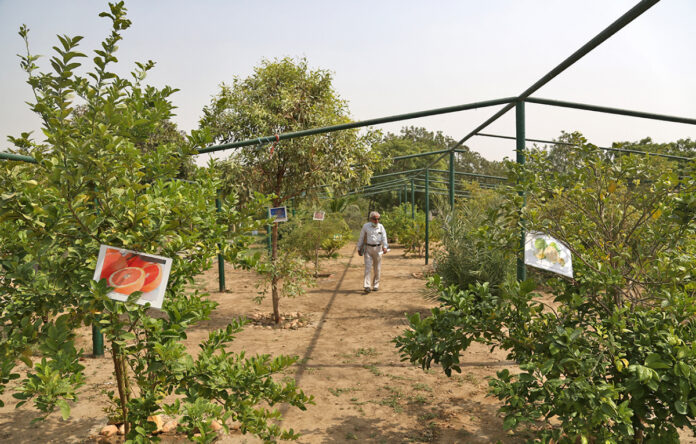KARACHI: An 80-year-old civil engineer who spent most of his professional life in Saudi Arabia and was inspired by the Islamic Botanical Garden in Sharjah will soon launch a similar project in the southern city of Karachi: Pakistan’s first Islamic garden.
Like the Sharjah park, which opened in 2014, Shaukat Omari’s garden features trees, plants and shrubs named in the Islamic scriptures. The garden is located inside the Jinnah Urban Forest, with 25 species having been planted so far, including olive, pomegranate and fig trees, date palms and citrus plants.
The garden is housed inside the Jinnah Urban Forest in Karachi, next to the mausoleum of the founder of Pakistan, Quaid-e-Azam Mohammed Ali Jinnah. The forest was inaugurated by President Dr. Arif Alvi and his wife Samina Arif Alvi on Oct. 17.
Omari hopes the Islamic garden, complete with a children’s play area, will be ready to open to the public within six months.
“I was inspired by the beautiful Islamic garden in Sharjah,” Omari told Arab News. “My research showed that 22 plants are mentioned in the Qur’an, while the rest of the 77 are named in Hadith literature.”
Omari said he was also inspired by Prime Minister Imran Khan’s dedication to fighting climate change and his tree plantation projects around the country. In fact, the idea to set up an Islamic garden first started off as an attempt to plant more trees around Jinnah’s tomb.
When the urban forest was launched nearby, Omari came up with the idea of replicating the Sharjah Islamic Botanical garden there.
“I thought it was going to be great for children since very few people can tell you what the Qur’an and Hadith say about plants,” he said. “I felt the garden would be a perfect place to educate visitors.
“More than 75 percent of the plants here can be used for medicinal purposes,” he added. “We intend to tell children about their characteristics and how they were prescribed by the Prophet Muhammad (PBUH).”
Asked if he had any corporate or government support for the project, Omari said he and his fellow engineers did everything almost entirely on their own.
“We had no real support,” he said. “The only support we got was from the management of the mausoleum, which proved to be quite enough.”

